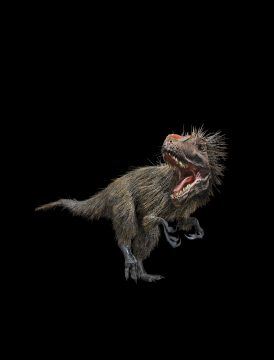Verlyn Klinkenborg at the NYRB:

As I was reading some recent books on dinosaurs, I kept wondering, “What were dinosaurs for?” It’s a ridiculous question, and I wondered why I was wondering it. After all, dinosaurs were “for” exactly what we are “for,” what every organism has been “for” since life began. Every species that has ever lived is a successful experiment in the enterprise of living, and every species is closely kinned at the genetic level with all other species. This is harder to grasp than it seems, partly because the logic of that Satanic preposition—“for”—is so insidious, so woven through the problem of time. Teleology is the moralizing of chronology, and nowadays science tries to keep watch for even the slightest trace of it, any suggestion that evolution has a direction tending to culminate in us or in what we like to call intelligence or in any other presumably desirable end point.
But the obvious, quotidian logic of chronology is basically too much for the human mind: we’re constantly confusing sequence, causation, and purpose. Because we come after, it’s easy to suppose we must be the purpose of what came before. That’s what recent generations of humans have supposed and continue to suppose. Such is the nervous logic of living not only in the present but also at the constantly moving end point of the chronology of life on Earth.
more here.
